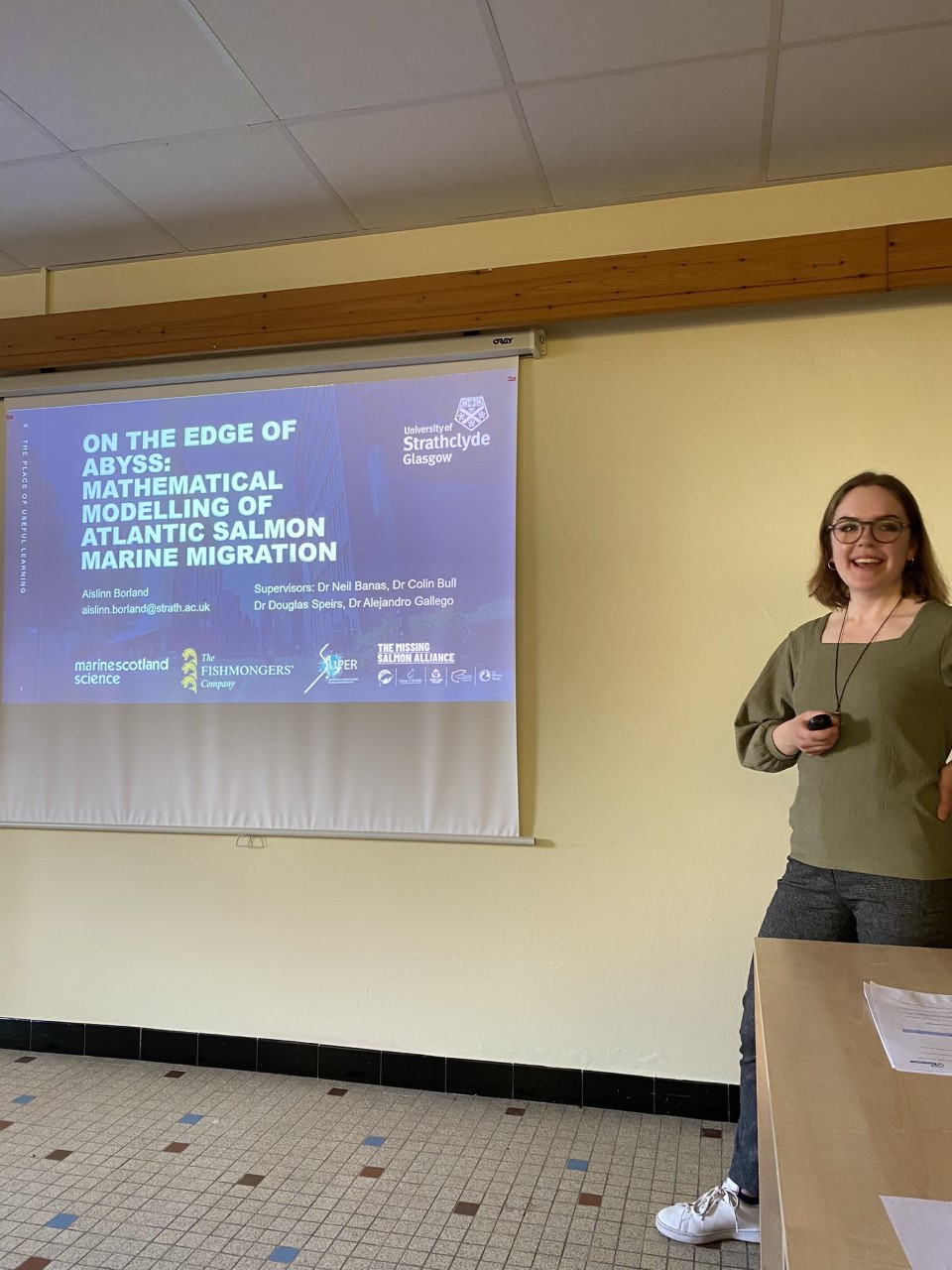Aislinn Borland, a PhD student at the University of Strathclyde, talks more about her studies on the migration of Atlantic salmon, which is supported by the Missing Salmon Alliance.

My PhD involves modelling the migration of Atlantic salmon from rivers around the UK and Ireland during their first few months at sea. This is a time when mortality rates are high but we have little understanding of the causes behind this. We hope to develop a better understanding of the migratory paths of salmon, and what impacts these, during this time period, allowing for a more concentrated investigation of early marine mortality.
In the months of April and May each year, post-smolts (defined as salmon that have smoltified and entered the sea, but not yet reached maturity) leave rivers around the UK and Ireland to migrate towards feeding grounds in the northeast Atlantic. From telemetry studies around the coast and trawling studies further out at sea, we know some of the locations of post-smolts in this time frame, but we do not know the full migratory paths they take. Hence we are using modelling work here to “join the dots” in the data we have; investigating where post-smolts go as well as why they might go there. Their migratory paths may vary significantly between years, depending on the conditions experienced, so understanding the mechanisms behind what impacts these paths (e.g. varying oceanographic conditions) will hopefully allow us to start predicting the migratory routes.
For this work, we are using a type of model called a particle tracking model. In this type of model, we assume that a population is made up of lots of individual “particles” whose movement is governed by local currents (given by an ocean model) plus any active swimming behaviour employed by the particles. Essentially, we run computational simulations where we release lots of particles, representing post-smolts, and track their movement. These simulations can be run over multiple years of oceanographic data to see how migratory routes vary over time.
I just started my PhD in October 2021, so I still have a lot to learn and a long way to go, but I am really enjoying the work so far. I have spent a lot of my time so far reading papers on relevant topics such as salmon ecology and oceanography, and I have also started working on my particle tracking model. I even got the opportunity recently to present my work at an international workshop on anadromous salmonids for early career researchers, NoWPaS, in France. It was a great experience – I enjoyed communicating my work to new people and hearing their thoughts on it.
I am excited to be a part of such important and fascinating research. It is great to see the breadth of work being undertaken to improve Atlantic salmon conservation – they are an iconic species and we must make every effort to prevent further devastating declines to their population.